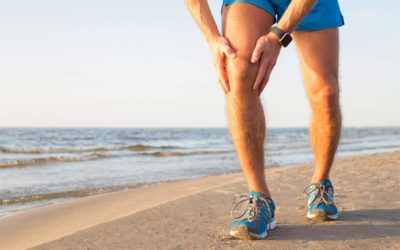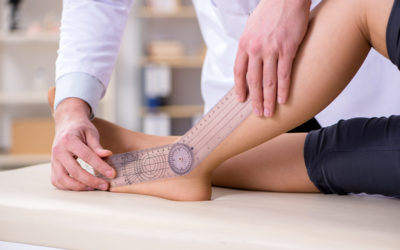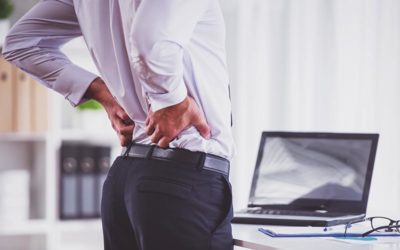Vols’ Retired Rugby Coach Back In The Game
Butch Robertson, retired rugby coach at the University of Tennessee, is grateful to Dr. Patrick Bolt and Fort Sanders Regional for spine surgery that has allowed him to continue helping with the team and sport he loves so much.
Mulligrubbers, scrums, rucks and mauls. Butch Robertson knows ’em all.
But this is no unsavory cast of characters – they are terms used in rugby, a sport Robertson knows plenty about. After all, he not only played it at North Carolina State, but also racked up more than 750 victories for the University of Tennessee during his 34 years as the Vols’ head coach.
He officially left the game in May 2011, but the game never left him, thanks to an injury received during a match about 40 years ago. And thanks to Dr. Patrick Bolt, an orthopedic spine surgeon at Fort Sanders Regional Medical Center, Robertson is now back helping his successor, Marty Bradley, keep the Vols winning.
“I was going into a maul (the term used when a player carrying the ball is held by one or more opponents and one or more of his teammates also latch onto the ball-carrier to move toward the goal) and so was my teammate, who unfortunately either didn’t see me or decided to keep on coming and hit me in the back,” Robertson said, recalling a Saturday afternoon match when he was playing with the Atlanta Rugby Club.
“It was a case of where the role of a coach is to ensure that players understand the rules and the techniques of the game, but also how to play it safely. The Atlanta team was basically a self-coached team. As such, we just didn’t play it as safely as we could. Since we didn’t have that direction from the sideline, we kind of learned it the hard way and sometimes did things we shouldn’t have done.”
That blow to the back resulted in an injury requiring a partial discectomy. The injury was compounded years later by degenerative disc disease and spinal stenosis.
“Mr. Robertson had pretty classic spinal stenosis where he had a great deal of difficulty walking any distance without sitting down,” said Dr. Bolt. “He felt like he had to hold onto a cart at the store which leaned him forward, taking pressure off his back. It was a pretty classic case, and we tried everything we could to avoid surgery.”
For six years Dr. Bolt managed Robertson’s pain with steroid injections and physical therapy, knowing the day would come when major spinal surgery was needed.
That day came in May 2014 when Robertson and his family went on vacation to the Spoleto Festival in Charleston, S.C. “I could hardly walk,” he said. “I just had to push myself through the pain. I clearly needed surgery.”
And Dr. Bolt was just the man to do it. Robertson had been referred to Dr. Bolt by Michael Casey, MD, Dr. Bolt’s colleague at Fort Sanders Regional, and a rugby fan, friend and team doctor. Dr. Casey once worked with the perennial world-champion All Blacks in New Zealand on a sports medicine fellowship.
“The thing I enjoyed about working with them was they had the same set of priorities: they recognized the competitive nature of the sport and the desire to keep our kids healthy. These guys had established credibility in my mind by the way they approached their athletic injury issues,” Robertson said. “Seeing how they responded to on-the-field situations and how they helped kids, it made me realize, ‘You’re not going to get any better than this. These guys know what they’re doing.’ So why, after seeing them in action, would I go to anyone else to get this work done on me?”
The only question in Robertson’s mind was WHEN to do the surgery. With a projected 12-week recovery period and a slew of engagements ahead, he delayed the surgery until Feb. 10 of this year. On that day, he entered Fort Sanders Regional Medical Center, where Dr. Bolt removed bone with laminectomies at L3-4-5 and fused the L3-4 vertebrates
which were unstable due to spondylolisthesis (also known as a “slipped disc” or “sliding vertebrate”). He utilized computer navigation to surgically place the pedicle screws to hold discs in place.
“Because of his previous surgery and the amount of arthritis, his L3 vertebrate had slid in front of the L4 which aggravates the pain of spinal stenosis and caused back pain with standing and walking which was relieved by sitting,” said Dr. Bolt. “A lot of people have spinal stenosis, a lot of people have spondylolisthesis but only about 1 out of 10 people with those conditions will need surgery; most of the rest can be treated with physical therapy and anti-inflammatories and injections. But when we do need to do surgery, the most important part of the surgery is getting the pressure off the nerves and stabilizing the loose vertebrate.”
Robertson was in the hospital five days, an experience he says was made easier because of the staff which he said was “absolutely top drawer, nice and concerned from beginning to end.”
“Everybody I met on the various nursing floors I was on – top to bottom – was courteous and concerned,” he said. “My wife, Rebekah, stayed with me three or four of the nights while I was in the hospital and they were very helpful and courteous to her. They really made a difference in that period that was really challenging.”
And once home, Rebekah made the difference. “She was my nurse, my chauffeur, my chef, my ear, my counselor. She just supported me immensely throughout this whole thing,” he said of his wife of 38 years. Today, Robertson says, “I feel great and I am doing things I hadn’t been able to do in a year.”
One of those things is rugby, helping coach Marty Bradley with the Vols team. Of course, you won’t be seeing him in a “scrum” any time soon. “Did I tell you how old I would be on my next birthday?” he says with a laugh. “I didn’t say this wasn’t a fun sport, but I did say it is a fun sport for young men.”
For more information about spinal procedures at Fort Sanders Regional Medical Center, call 865-673-FORT (3678).



